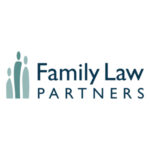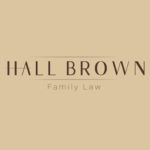This category can only be viewed by members.
Deborah Jeff reflects on the approach to maintenance following the seminal decision of Mostyn J in B v S and how the principles in that case have subsequently been applied A spousal maintenance award is properly made where the evidence shows that choices made during the marriage have generated hard future needs on the part …
Continue reading "Maintenance: The road to independence"
This post is only available to members.
Nahanni Simcox considers no-fault divorce and whether the reforms might increase the attractiveness of England and Wales as a divorce jurisdiction It is imperative that parties with cross-jurisdictional assets and interests carefully consider the jurisdiction in which they issue divorce or dissolution proceedings. Following the introduction of ‘no-fault’ divorce on 6 April 2022, it will …
Continue reading "Divorce: Opening the floodgates?"
This post is only available to members.
Farhana Shahzady asks whether family lawyers are failing women who are going through the menopause The worry is that the voice of some women is being lost and the level of hardship some women are being asked to endure due to menopause in later life is far from fair, when ironically fairness is the backdrop …
Continue reading "Financial provision: An invisible cohort?"
This post is only available to members.
Matthew Hodgson and Edward Davison highlight a Sch 1 claim where the court considered the approach to indebtedness and provision to allow for future career development A claim for maintenance which is earmarked for a parent’s career development falls on the wrong side of the line between a claim which is for the benefit of …
Continue reading "Schedule 1: Setting boundaries"
This post is only available to members.
David Wilkinson sets out the key principles to be applied in cases involving obligations owed by the parties and what may categorise a debt as hard or soft A hard obligation should appear on the judges’ computation table but where an obligation is in the category of a ‘soft’ obligation or loan, the judge may …
Continue reading "Liabilities: Minding your P v Q"
This post is only available to members.
Beth Duffy outlines the provisions of the pilot for private children proceedings and the potential for improvements to the current process The pilot places a focus upon the consideration of alternative dispute resolution methods and makes specific reference to mediation as an opportunity for families to work in a positive and constructive way to resolve …
Continue reading "Law reform: Lessons to be learnt"
This post is only available to members.
Holly Cook and Jacob Quested Khan consider protection from self-incrimination in private law children proceedings In all areas of law where the welfare and safety of a child is considered, the need to be honest with the court is an essential and key part of the long-established ‘working together’ principles. In F v M [2021], …
Continue reading "Evidence: In all honesty"
This post is only available to members.
Heather Lucy analyses the lessons that can be learnt from a judgment in an ultra-high-net-worth case as to interim applications more generally The preparation of a separate budget for an interim application adds an additional element of costs and can cause concern that the applicant is effectively benchmarking their needs, which can then impact on …
Continue reading "Maintenance pending suit: One size does not fit all"
This post is only available to members.
Katherine Res Pritchard and Sacha Lee look at internal relocation and the approach taken by the courts following Re C Prior to Re C, in practice, internal relocation cases had a reputation for being difficult to contest, particularly where the distances involved were short. Internal relocation refers to a move by one parent with a …
Continue reading "Private children: Same difference?"
This post is only available to members.
Danielle Nuttall analyses the approach to orders made at interim hearings in private children proceedings Only written evidence is permitted at interim hearings unless an application is made, and granted, for the witness to attend for oral evidence. The onus is thus firmly on the party who wishes to challenge the written evidence to apply …
Continue reading "Private children: Narrowing the options"
This post is only available to members.







